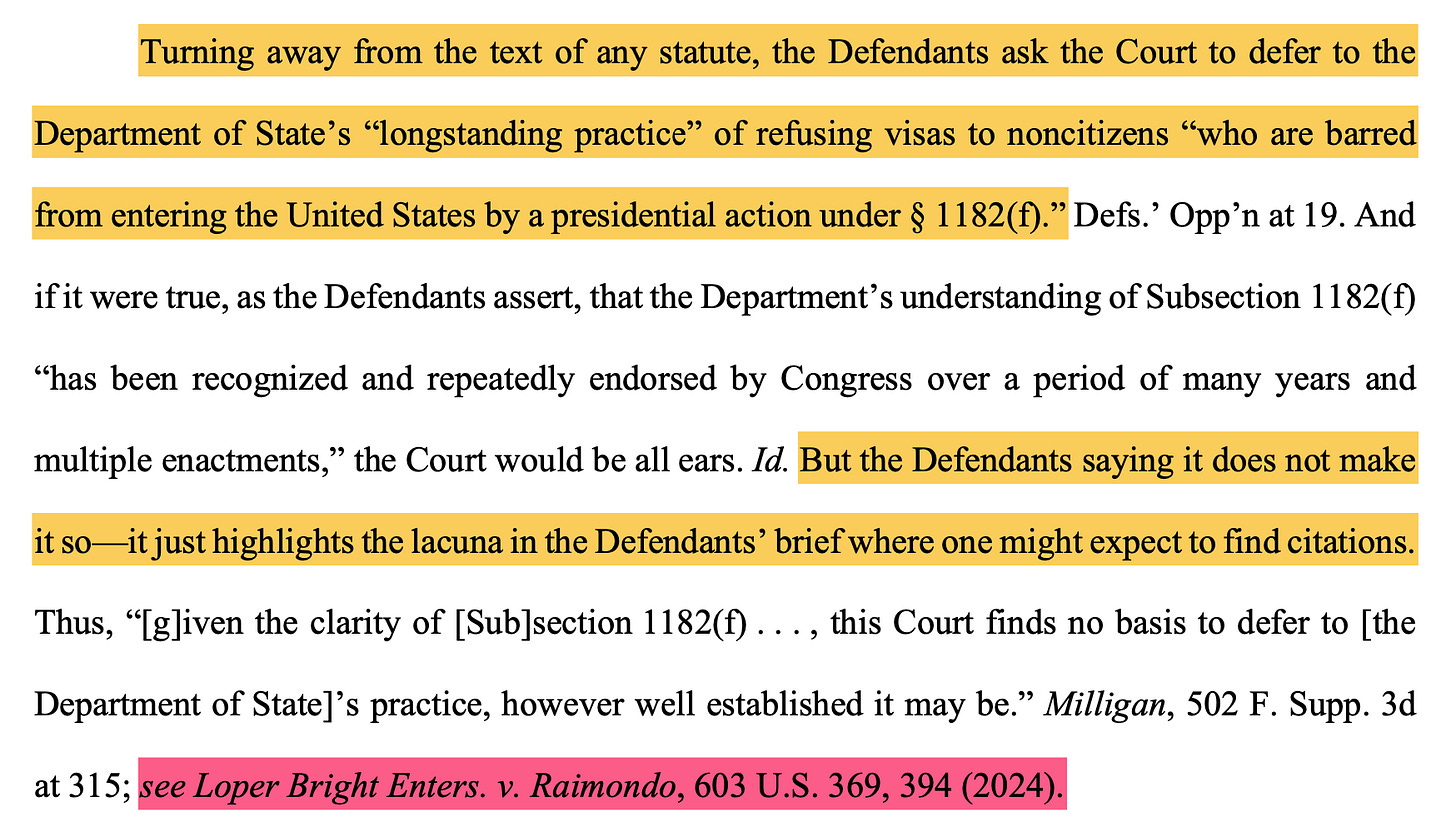Judge blocks State's use of Trump's travel ban to reject visa applications
U.S. District Judge Sparkle Sooknanan's preliminary injunction is good for the rule of law, but only provides limited relief to those targeted by the Trump administration.
A federal judge on Thursday ruled that the State Department likely violated federal law by using President Donald Trump's travel ban to justify rejecting diversity visa applications.
“Th[e] provision authorizes the President, subject to specified limitations, to ‘suspend the entry of all aliens or any class of aliens as immigrants or nonimmigrants, or impose on the entry of aliens any restrictions he may deem to be appropriate,’” U.S. District Judge Sparkle Sooknanan wrote, referring to 8 U.S.C. § 1182(f), the provision used by Trump to authorize his travel ban. “Plain as day, Subsection 1182(f) addresses only the question of entry, not the issuance of visas.”
It is a limited preliminary injunction order, however, on multiple grounds that does not guarantee that any specific applicant will be allowed entry to the United States.
First, the ruling from Sooknanan, a Biden appointee, only addresses a handful of diversity visa “selectees” — people who literally won the lottery to apply for a diversity visa — not any other immigration provisions.
Second, Sooknanan rejected the plaintiffs’ constitutional arguments in light of the U.S. Supreme Court’s decision that upheld a modified travel ban in Trump’s first term.
Third, the ruling does not apply to those whose applications already were refused. Under the doctrine of consular non-reviewability, what’s done is done — as far as courts go.
Finally, the ruling does not change whether applicants from countries subject to the travel ban can be refused entry to the country, even if they were to get a visa.
But, for those diversity visa applicants whose applications were put into "administrative processing," Sooknanan ordered "good-faith efforts" by State to issue rulings by the upcoming Sept. 30 deadline — and that State not rely on the travel ban for diversity visa refusal.
In a notable part of her ruling, addressing the Justice Department’s argument that State's "longstanding practice" is to deny visas to those who would be denied entry under a presidential proclamation authorized by the provision used to justify Trump's travel ban, Sooknanan responded by citing to Loper Bright Enterprises v. Raimondo — the Supreme Court decision ending agency deference — in rejecting that aspect of DOJ’s argument.
Ultimately, this is a ruling that pushes back on overreaching moves by the Trump administration — a good thing — but it also shows the limits of court action given that it does not, immediately at least, change the final outcome of whether any person would be able to use any given visa to come to America.






A small step of progress in a “problem” where none existed before.
Bien hecho, son personas cualificadas en su mayoría, sin antecedentes, con ganas de prosperar!!! Gracias